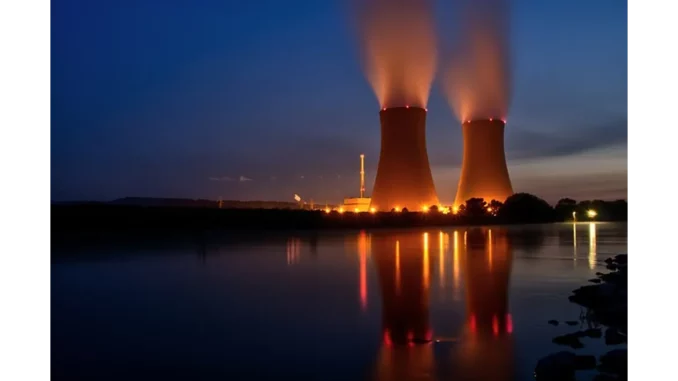
Earlier this week, I had the distinct opportunity to sit down with Sarah Thompson, Director of Sustainability at EDF, to delve into the newly released 2024 Sustainable Business Progress Update. This comprehensive report elucidates how EDF is steadfastly advancing its mission to assist Britain in achieving net zero emissions. The dialogue was both enlightening and inspirational, shedding light on the significant progress one of the UK’s foremost energy suppliers is making towards a sustainable future.
Discover how Focus360 Energy aids sustainable development with Sustainability Statements.
Marking a milestone in its 25 years of operations in Britain, EDF has committed an impressive £25 billion in investments, with ambitions to facilitate an additional £50 billion by 2035 to develop 15GW of zero-carbon electricity. Sarah Thompson emphasised that this long-term vision transcends mere numbers, focusing instead on the tangible impacts on communities and the environment. A noteworthy achievement in 2023 was the reduction of carbon intensity at the point of generation to zero. This significant milestone translates into zero-carbon electricity powering over 3.7 million homes and organisations, including the NHS.
Central to EDF’s strategy is its unwavering commitment to nuclear energy. Since acquiring Britain’s nuclear fleet in 2009, the company has invested £7.5 billion into this asset. Thompson highlighted that the nuclear stations have generated 35% more energy than initially forecasted, a feat equating to powering every UK home for two years. Looking ahead, EDF plans to invest a further £1.3 billion by 2026 to sustain this critical output. The conversation naturally steered towards Hinkley Point C, the UK’s first new nuclear power station in a generation. Thompson described it as a “beacon of our nuclear renaissance,” with the project having achieved major milestones such as the lifting of the dome onto the first reactor in December 2023. Beyond energy, Hinkley Point C has stimulated economic growth and job creation, supporting 23,500 jobs and training 1,320 apprentices.
The socio-economic impact of EDF’s projects emerged as one of the most compelling aspects of our discussion. Hinkley Point C alone has invested £24 million into education and skills support. Through new Centres of Excellence, over 8,000 individuals have been trained, with nearly a third hailing from some of Britain’s most deprived areas. Thompson underscored that education and skill development are central to EDF’s mission, fostering growth and creating opportunities within communities. The ripple effect of Hinkley Point C sets the stage for future projects like Sizewell C, which, once operational, will power 12 million British homes and bolster the country’s energy security with long-term, zero-carbon power.
While nuclear energy is a cornerstone, EDF Renewables is also making significant strides in renewable energy. Operating 1.5GW of renewable capacity with an additional 14GW in the pipeline, EDF is at the forefront of the renewable energy sector. The Neart na Gaoithe wind farm off the Fife coast stands out as a landmark project, anticipated to power up to 475,000 homes. EDF’s renewable portfolio is diverse, encompassing 36 onshore wind farms and the first three 50MW solar farms in the UK becoming operational this year.
EDF’s commitment to sustainability extends beyond energy generation to encompass its own operations. The company aims to achieve net zero by 2050 and holds the distinction of being the only UK energy firm with the Biodiversity Benchmark certification. This reinforces its pledge to positive biodiversity outcomes. The 2024 update also highlights EDF’s efforts to support customers with energy efficiency measures and low carbon solutions. Through the ECO4 scheme, EDF funded the installation of 63,000 efficiency measures in 15,000 homes by the end of 2023, helping customers reduce their carbon footprint.
In an era marked by economic challenges, EDF’s support for vulnerable households is particularly noteworthy. The company has provided £15 million in debt relief and payment support over the past year, demonstrating a steadfast commitment to aiding those in need during the ongoing affordability crisis.
A significant aspect of EDF’s strategy is its partnership with the government. Thompson welcomed the new government initiatives aimed at accelerating the delivery of new energy infrastructure, particularly the immediate lifting of the onshore wind ban in England. EDF looks forward to continued collaboration with Great British Energy and Mission Control to further these goals.
As our conversation concluded, Sarah Thompson encapsulated EDF’s vision succinctly. The 2024 update exemplifies EDF’s enduring commitment to helping Britain achieve net zero, positioning the country as a potential clean energy superpower. With its strategic investments, pioneering projects, and unwavering dedication to sustainability, EDF is indeed reshaping the power landscape in Britain. The future looks promising, and with companies like EDF at the helm, a sustainable future is not just a distant aspiration but an impending reality.


Be the first to comment